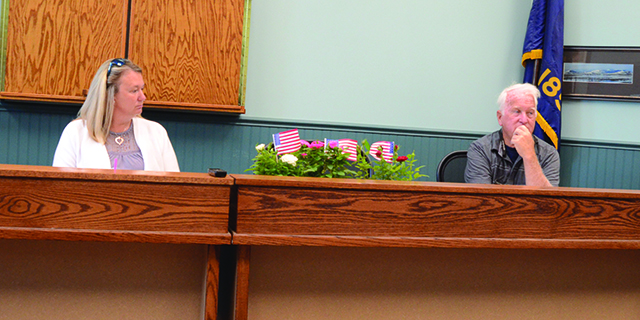McColgan Impeachment part 2
Published 6:00 am Wednesday, January 22, 2020
This column is the second in a two-part series about impeachment.
In 1978, Bill Clinton, then attorney general of Arkansas, and his wife, Hillary, who was working as a private attorney, formed a limited partnership with political and business friends Jim and Susan McDougal to buy 230 acres intended for development as vacation lots. This failed business deal followed the Clintons to the White House in a storm of controversy that ultimately became known as the Whitewater Investigation.
Trending
By 1994, President Bill Clinton agreed to have a special prosecutor, investigate allegations about whether the Clintons had broken the law. For more than four years after that, the special prosecutor, Kenneth Starr, doggedly pursued allegations of wrongdoing by the Clintons but ultimately made no charges against them over Whitewater .
But during this same time, Starr’s investigation expanded to include the possibility that Clinton might have lied under oath in that case. At the same time, Linda Tripp was secretly taping private conversations with a former White House intern Monica Lewinsky, who claimed to have had a sexual relationship with President Clinton. Ultimately these matters led Starr to recommend impeachment charges against Clinton.The Republican majority in the House voted to approve two of four impeachment articles — lying under oath and obstruction of justice — on Dec. 19, 1998. In the Senate trial that followed, Clinton was acquitted on both charges.
In 2016, in a stunning political upset, Donald Trump was elected president amidst his own storm of controversy, much of which he created deliberately throughout the campaign. Some matters that have embroiled his presidency in legal turmoil include Trump’s complicated and secretive financial history, his refusal to release his taxes, his flaunting of constitutional prohibitions against “emoluments” and his unusually cozy relationship with Russian President Vladimir Putin.
An FBI investigation into allegations of Russian interference in the 2016 election ultimately led to Trump firing several top officials. In the political storm that surrounded these events, Congress voted to appoint a special counsel, former FBI Director Robert Mueller, to conduct an investigation into Russian interference in the 2016 election.
Mueller’s investigation has led to charges, guilty pleas or convictions for a variety of Russian operatives and former Trump campaign associates, and to a final report presented in May of 2019. Mueller’s investigation did not support charges of collusion against President Trump. But he laid out 10 possible grounds for obstruction of justice, leaving it up to the Justice Department or Congress whether to pursue those charges. Attorney General William Barr flatly declined, maintaining that they were insufficient and unlikely to lead to conviction in court. While Barr’s handling of the matter led Republicans to claim a political victory and Trump to proclaim full exoneration, Mueller himself stressed that his investigation had not exonerated Trump.
Just two months after Mueller’s report, a new charge developed against Trump. The allegation: Trump had used nearly $400 million in approved military aid and a possible meeting with the Ukrainian president as bargaining chips to dig up political dirt on Joe Biden, Trump’s potential opponent in the 2020 election. The gravity of the new allegation led Democratic House Speaker Nancy Pelosi to change her previous position on possible impeachment hearings.
Trending
House committees launched those hearings in September. Trump blocked testimony from his own White House staff members, but a variety of officials from the State Department gave testimony before Congress under oath that supported the whistle-blower’s allegations. On December 18th, 2019, Donald Trump was impeached on (effectively charged with) two counts – Abuse of Power, and Obstruction of Congress – by a mostly party line vote in the House of Representatives.
On January 14th, after holding onto the Articles of Impeachment for several weeks in order to try to get Senate President Mitch McConnell to agree to hold a trial that would include witness testimony, House Speaker Nancy Pelosi called for a vote to formally send the Articles of Impeachment to the Senate. The vote was approved by a similar margin as in December.
It is now up to the Senate to begin the trial, which will be underway by the time this article goes to print. As is customary, the chief justice of the U.S. Supreme Court, currently John Roberts, will preside at the trial. Given the current composition of the Senate, it is unlikely that this trial will lead to a conviction, or even a majority vote for a conviction, on either count.
But citizens will have a chance to witness an unusual constitutional provision making history, and they will have a chance to render their own verdicts on some of their representatives and senators, not to mention President Trump himself, in the fall.
I am not sure that any of this is a sign that our republic is alive and healthy, but at least it still shows a pulse.
John McColgan writes from his home in Joseph.









